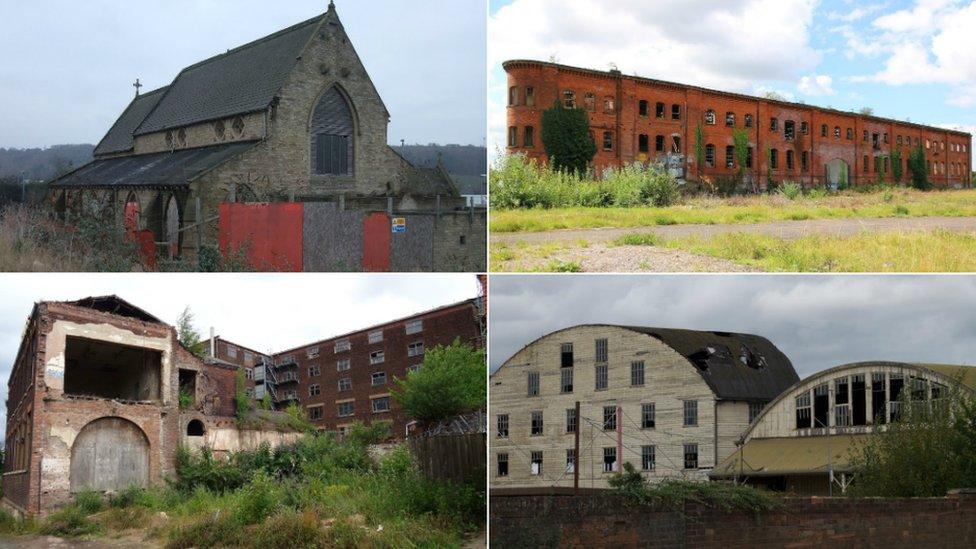Colliery and tunnel on Victorian Society 'at risk' list
- Published
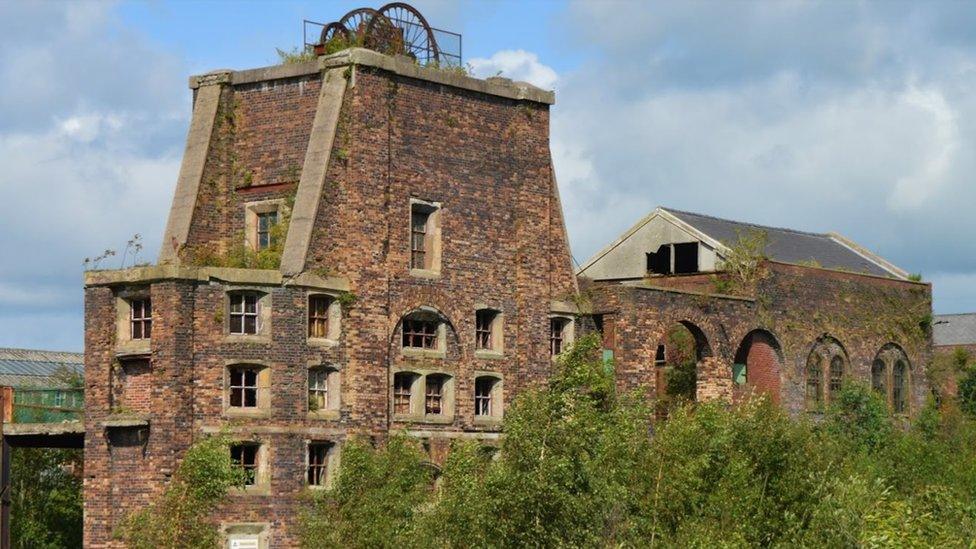
The Chatterley Whitfield Colliery in Stoke is one of the Victoria Society's 10 most at-risk buildings for 2019
A colliery, tunnel and library have topped a list of "absorbing" Victorian and Edwardian architecture most at risk of ruin in England and Wales.
The Victorian Society publishes its top 10 most endangered buildings and structures every year.
Its director Christopher Costelloe said the latest list is a "rich mix".
It includes Chatterley Whitfield Colliery in Staffordshire, Queensbury Tunnel in West Yorkshire and Everton Library in Liverpool.
The scheme, now in its 12th year, uses public nominations to determine which buildings to list.
Victorian Society president Griff Rhys Jones said this year's examples include "gems" and "real historical moments".
He said: "It is both inspiring and saddening to see this list. Who would have thought that a call to arms would reveal such a wealth of distinguished and absorbing architecture?"
The 2019 top 10 are:
Chatterley Whitfield Colliery, Staffordshire
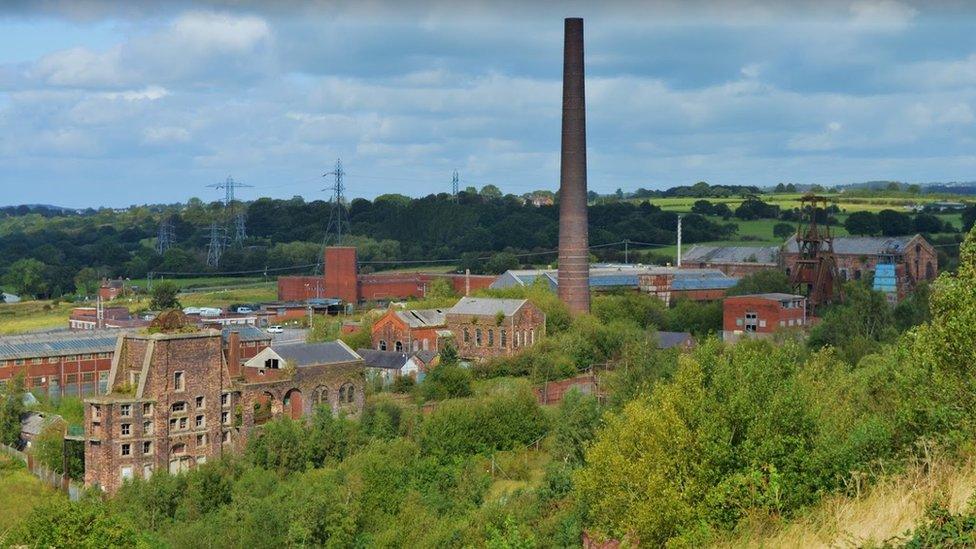
The disused coal mine at Chell was the first colliery in the UK to produce one million tonnes of saleable coal in a year and is said to be one of the most complete remnants of a mine in the country. The site is vacant and the buildings are in a very poor condition.
Shadwell Court, Norfolk
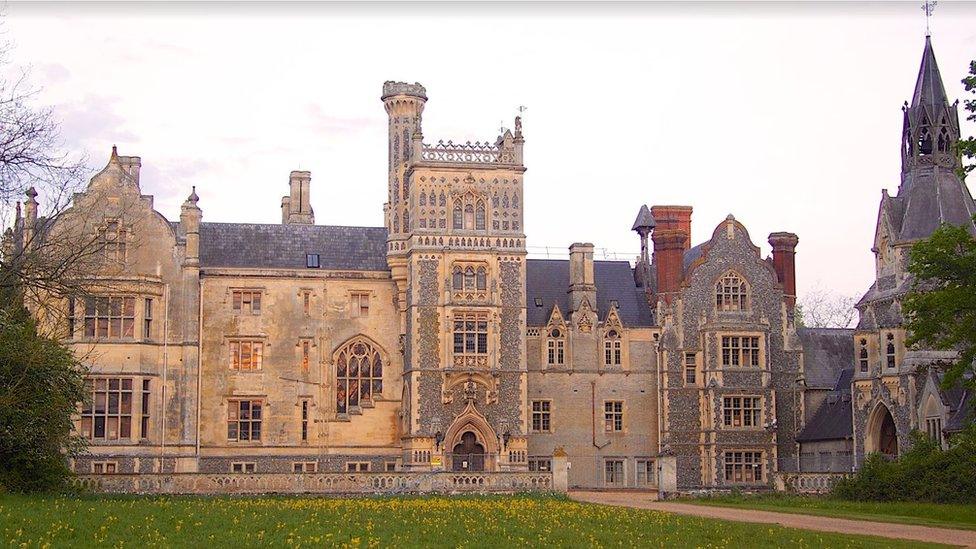
Grade I-listed Shadwell Court was built in 1715 but was remodelled beyond all recognition in 1840 by Edward Blore and again 20 years later by SS Teulon. The gothic mansion has been empty since the 1990s and is owned by a member of the Dubai ruling family, the society said. Mr Costelloe said it would be a "scandal" if the mansion, which has extensive roof problems, is not fixed.
Queensbury Tunnel, West Yorkshire
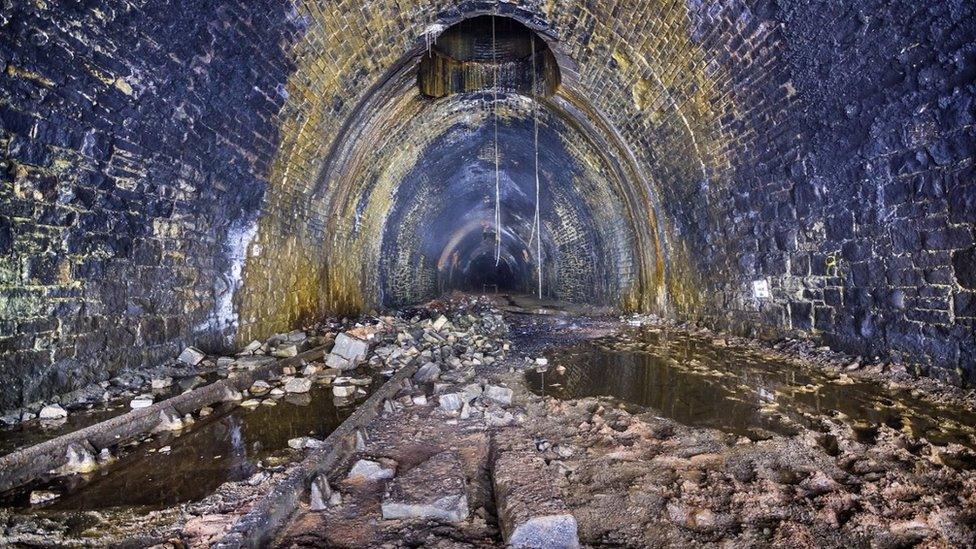
The two-mile (3.2km) long disused railway tunnel was Great Northern Railway's longest tunnel when it was opened in 1878 to connect Holmfield and Queensbury. It is currently abandoned and flooded with water and is at the centre of a heated debate between campaigners, who want it restored and turned into a cycle path, and the Department for Transport, which wants to fill in sections of the tunnel with concrete then leave it to collapse. The Society supports the former.
Everton Library, Liverpool
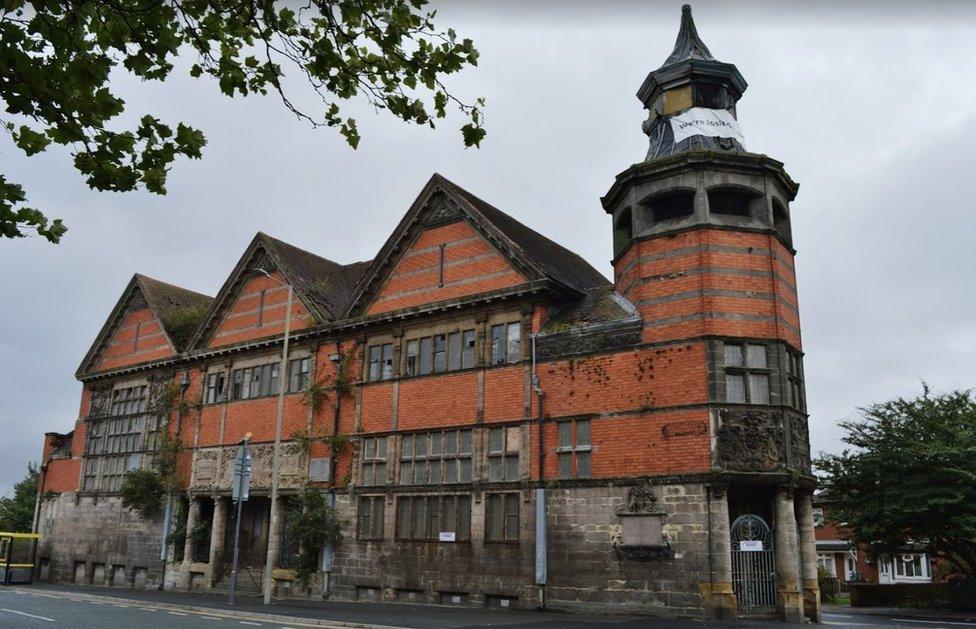
The Grade II-listed building opened in 1896, making it one of Liverpool's first libraries. It has not been used since 1999 and there have been two failed re-development schemes. It has suffered severe vandalism including lead theft which has led to water damage. Mr Costelloe said the building is a "jewel" the city "can't afford to lose".
Hulme Hippodrome, Manchester
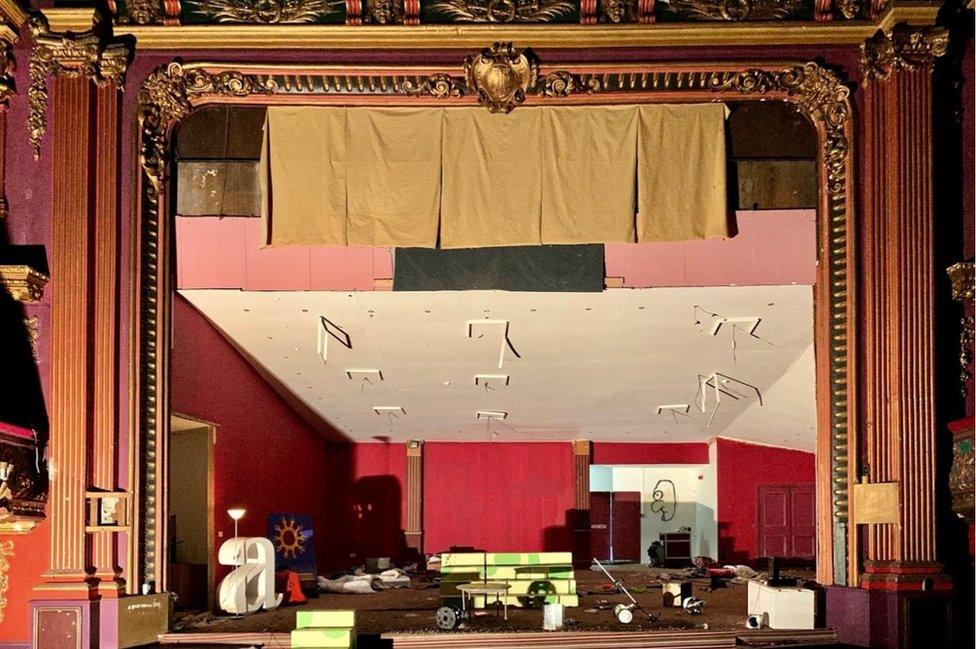
Originally known as the Grand Junction Theatre, the venue opened on 10 October 1901. It sold at auction in May for £325,000 and faces an "uncertain future", the society said.
Cowbridge School, Vale of Glamorgan
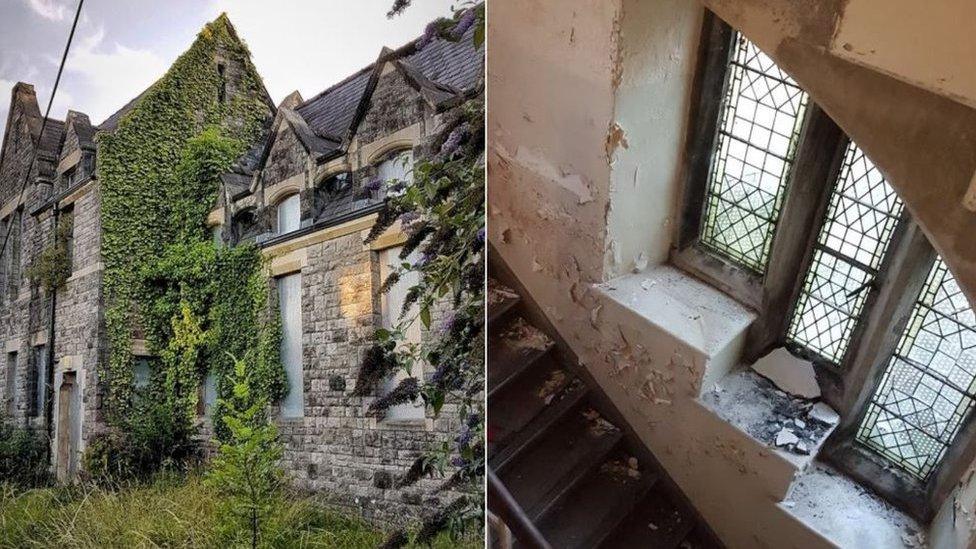
Cowbridge was one of 94 County Intermediate Schools designed to cater for children who had little or no prospect of attending independent public schools due to their social status or financial situation. It was built in 1896 and later housed Cowbridge Comprehensive's sixth form until its closure in 2010. The school's "thoughtless demolition" would be a "huge blow to the town", Mr Costelloe said.
Pelican Works, Birmingham
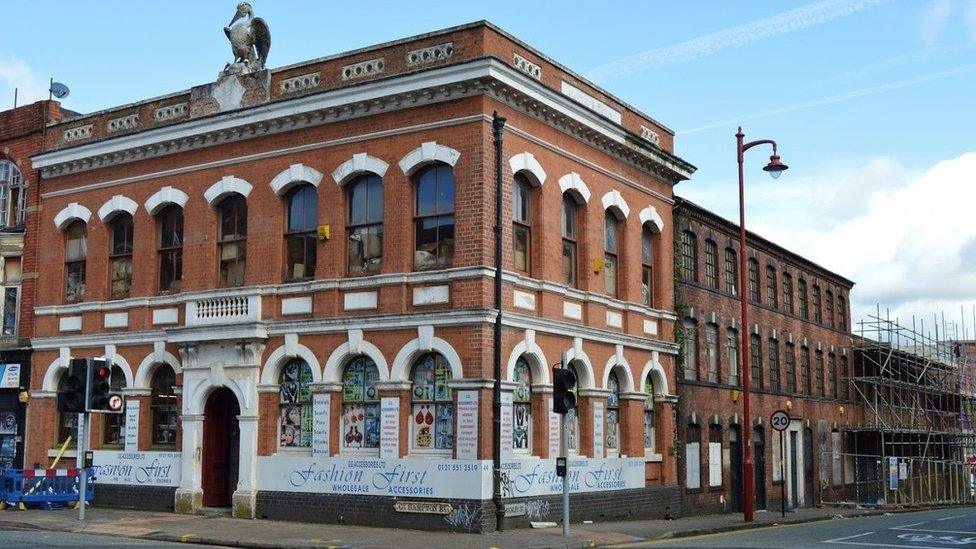
The Grade II-listed Pelican Works building in Birmingham's Jewellery Quarter was built for cutlery maker Thomas Wilkinson of Sheffield as an electroplating works. The Italian-style building is a "significant landmark" in the area but only the frontage is occupied, the rear having been partially demolished in May after shops in neighbouring Hockley Street collapsed.
Church of St Luke, Warrington
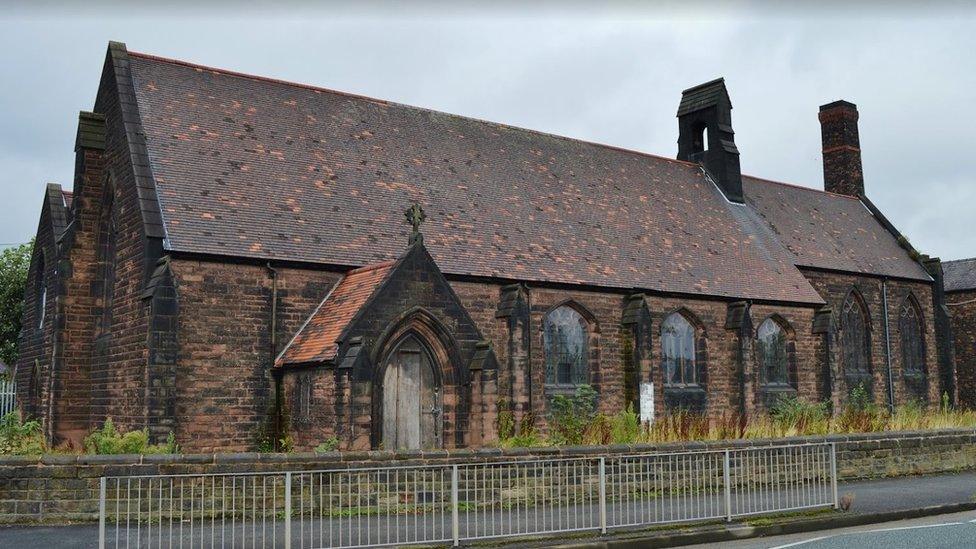
The church was built in 1892-3 and is one of just three examples of its type by architect George Frederick Bodley. It was declared redundant more than 30 years ago and has since been used for storage of building material. The interior featuring a double nave under a single roof separated by a slender central arcade is "extremely unorthodox and highly inventive", the society said.
Leslie Arms pub, Croydon
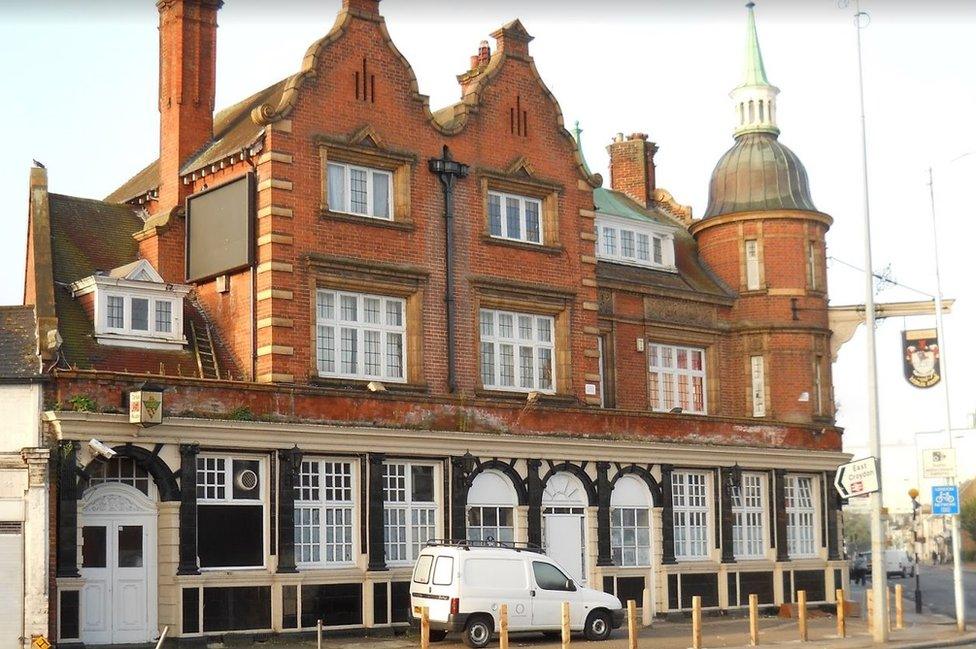
The derelict pub was built by brewers Nalder & Colyer in 1850 but has been closed for several years. Various planning schemes have been considered but none have come to fruition. Mr Costelloe said: "This is a building of great quality where continued pub use should be viable."
Corn Exchange and former Town Hall, Swindon
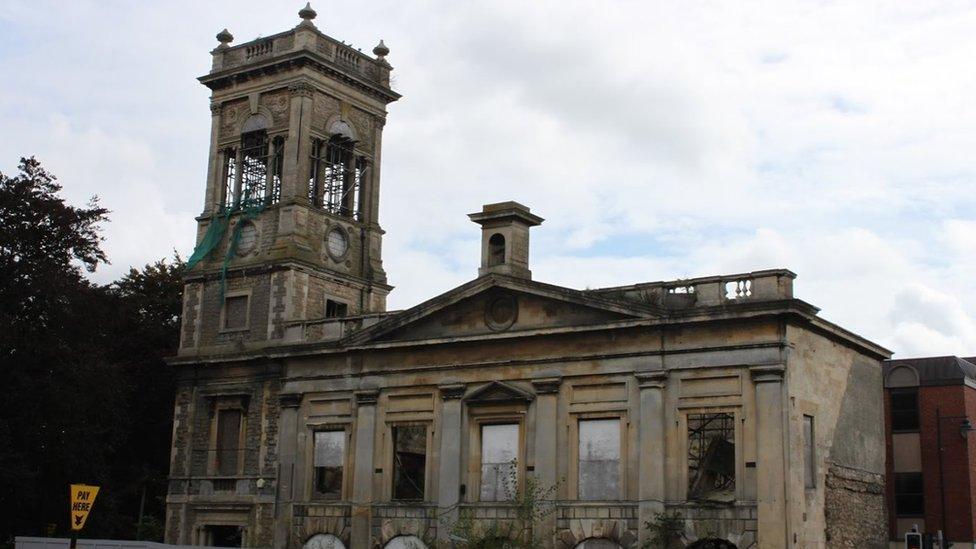
The ruined complex at the heart of Swindon's Old Town has been a corn exchange, town hall and dance hall at various times before falling into disuse. The society said several schemes had "come and gone" as the building "continues to deteriorate", with "urgent action" needed to save it. "An imaginative and sensitive scheme is needed to return the complex to its place at the heart of the town's life," Mr Costelloe said.
You may also be interested in:
- Published28 August 2019
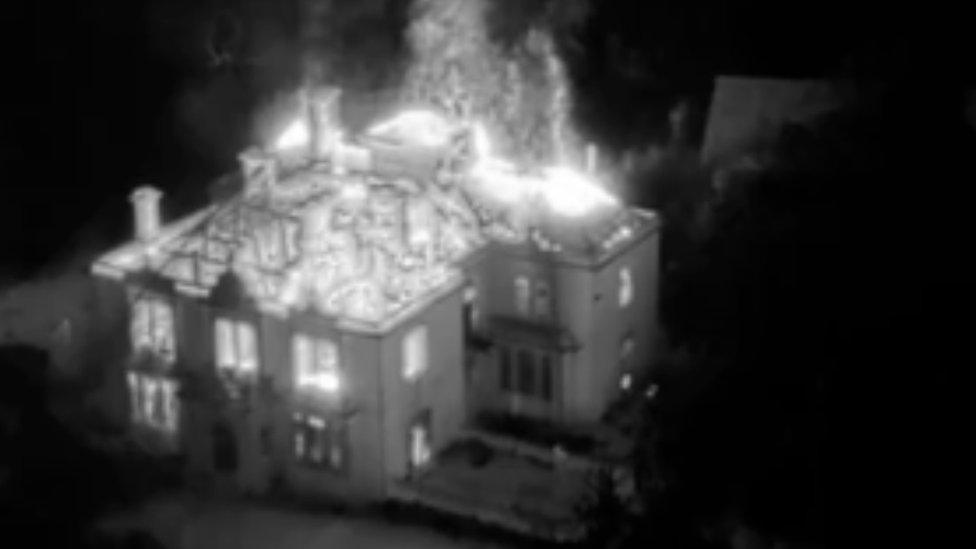
- Published12 September 2018
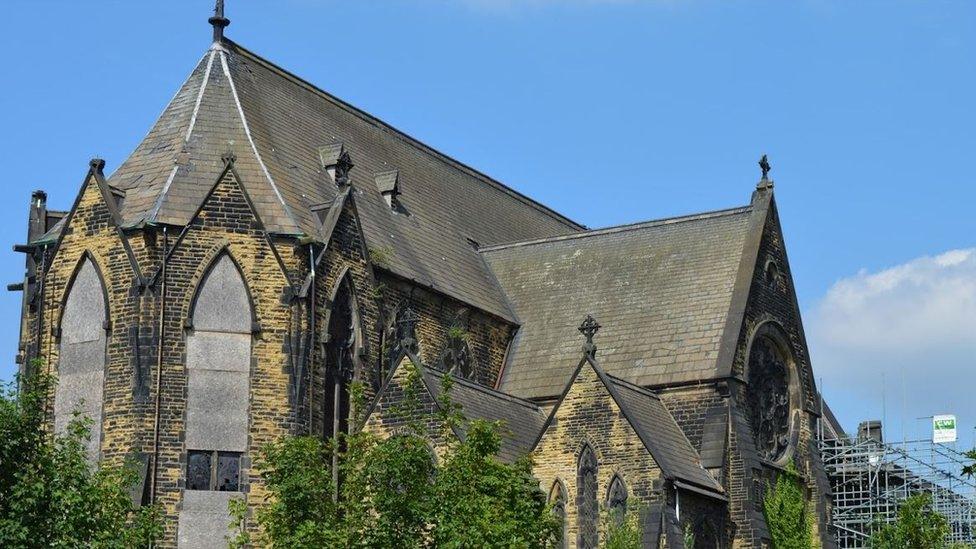
- Published13 September 2017
